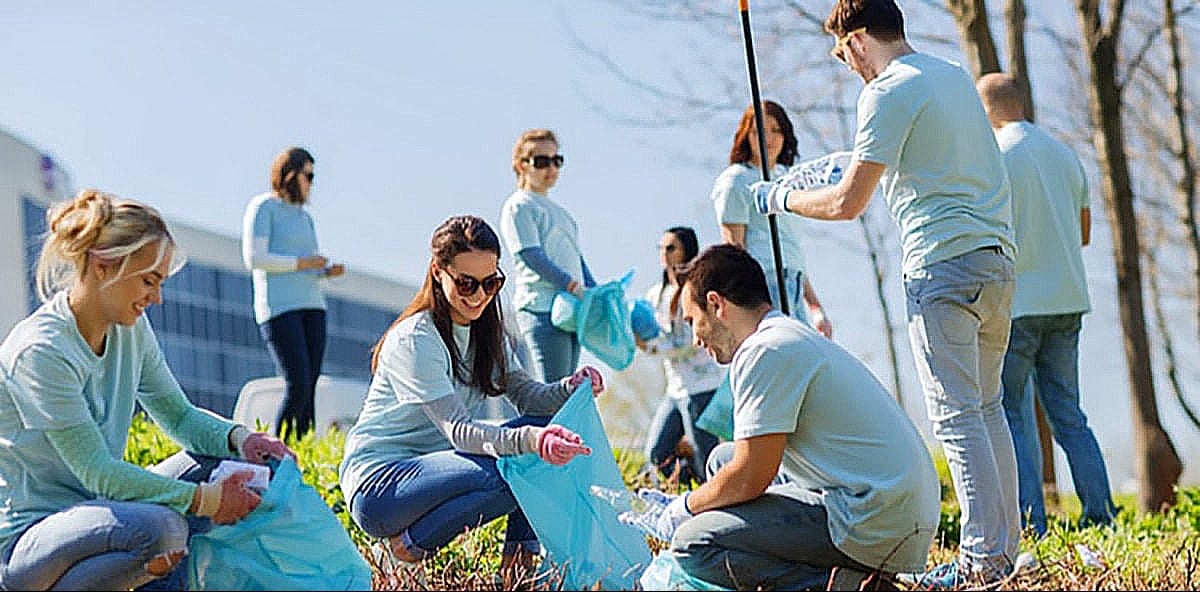When do nonprofits need workers’ compensation insurance for volunteers?

Volunteers are often the heart of a nonprofit. By lending their time and a helping hand, volunteer workers allow nonprofits to serve more of the community, spread awareness, and generate financial support that’s crucial to their cause.
But, if a volunteer slips off a ladder while painting a community center or gets bitten by a dog while cleaning an animal shelter, are they covered by the organization’s workers’ compensation benefits?
For that answer, you need to look at the laws of the state where the nonprofit is located. While every state has different workers’ compensation laws and regulations, only a few of them allow nonprofits to extend this coverage to volunteers.
It’s crucial for nonprofits to know the workers’ comp laws in their state, and to understand the importance of providing volunteers with accident coverage—not only for the well-being of their supporters, but for the financial and legal protection it can offer the organization.
- Are volunteers covered by workers' compensation?
- When does workers' comp cover volunteers?
- Why should nonprofits care about workers' compensation for volunteers?
- Alternatives to workers' compensation for volunteers
- What to do if a volunteer gets injured on the job
- Get business insurance for your nonprofit organization with Insureon
Are volunteers covered by workers' compensation?
At its core, workers’ compensation insurance is meant for individuals who are actively employed by and receive compensation from a nonprofit or company. These benefits kick in when a worker gets hurt on the job, helping to pay for:
- Medical bills for employees’ work-related injuries and illnesses
- Disability benefits, such as lost wages while an employee is recovering
- Death benefits in the case of a fatal employee accident
- Legal expenses, including attorney’s fees, court costs, settlements, or judgments
Some states allow organizations to extend their workers’ compensation policy to volunteers, so it’s vital to check your state’s workers’ comp laws or speak with a workers’ compensation lawyer first.

When does workers' comp cover volunteers?
There are a few special circumstances when volunteer workers are protected by a nonprofit’s workers’ comp policy:
- If volunteers receive payment in-kind, such as meals, gifts, or stipends, some states consider that compensation, which classifies those volunteers as paid employees.
- Most states have laws that provide workers’ comp coverage for volunteer firefighters, EMTs, and other emergency response personnel when they volunteer for a state or local government entity.
Why should nonprofits care about workers' compensation for volunteers?
While volunteer work plays a huge role in helping a nonprofit reduce its labor costs, if a volunteer gets hurt on the job, their lawsuit could ruin the organization financially, legally, and reputationally.
Having the right insurance coverage can protect an organization from a devastating lawsuit, but it’s critical to understand what different types of coverage can provide, such as:
- General liability insurance protects against bodily injury and property damage claims from third-party individuals who were on the organization’s property, such as visitors, delivery workers, and service providers.
- Workers’ compensation covers bodily injury claims from employees who get hurt on the job.
When it comes to providing volunteers with workers’ comp or specialized volunteer accident coverage, nonprofits should consider all the positive benefits, including:
- Protecting the organization from financial, legal, and reputational damages
- Showing a commitment to volunteers’ safety and well-being
- Fostering a culture of support and care for volunteers and employees
Alternatives to workers' compensation for volunteers
If your state laws don’t allow nonprofit organizations to extend workers’ compensation coverage to volunteers, there are other ways you can provide accident coverage.
- General liability insurance might cover your organization if a third-party individual is injured by a volunteer, but it likely won’t cover a volunteer’s injuries. Some policies can be amended to include volunteers by endorsement.
- Purchasing coverage specifically created for volunteers, such as occupational accident insurance (OAI), will provide coverage to individuals who normally aren’t covered by workers’ comp coverage. This coverage would help pay for medical costs if a volunteer is hurt while helping, which personal health insurance may not cover.
- Directors and officers (D&O) insurance can protect nonprofit board members and officers from liability claims resulting from their decisions.
- If volunteers are driving their own vehicles to handle an organization’s work, a hired and non-owned auto (HNOA) policy could help cover the costs of an accident.

What to do if a volunteer gets injured on the job
Let’s say a volunteer building houses steps on a rusty nail that punctures his foot. Here’s how to handle the situation safely and securely:
- Get the injured volunteer immediate medical care
- Document the incident, taking photos of the accident site and any visible injuries, to provide with your claim
- Review your organization's insurance policies, including workers’ compensation, volunteer accident insurance, or any volunteer-related endorsements for general liability insurance
- If your organization doesn’t have special volunteer coverage, speak with your state workers’ comp board to see if there are any available coverage options
- Speak to a workers’ compensation attorney to understand what coverage applies in your state and to clarify the legal rights of the organization
Can waivers prevent volunteer lawsuits?
Having your volunteers sign a liability waiver before they start a project can help prevent liability lawsuits. A well-written waiver should:
- Clarify potential risks and vulnerabilities that can arise from voluntary activities
- Limit an organization’s legal liability against claims of ordinary negligence
- Require the volunteer to assume responsibility for any injuries they sustain
However, these documents aren’t bulletproof. In fact, a court might rule a waiver unenforceable if:
- It’s poorly written, contains confusing legal terms, or has hidden disclaimers
- The organization displays gross negligence or intentional harm
- The organization lacks basic safety standards or creates hazardous conditions
Even if waivers can’t prevent every lawsuit, they’re still a very important step. They provide your organization with a chance to review safety concerns and risks with volunteers, address precautions and procedures, and establish a safe working environment for all involved.
Get business insurance for your nonprofit organization with Insureon
Want to find affordable workers’ compensation insurance for your nonprofit? With Insureon, you can get quotes from multiple top-rated U.S. insurance providers. All you need to do is fill out our easy online application.
If you have questions about workers’ comp or other accident coverage for volunteers, our licensed insurance agents would be happy to help. Once you find the right policies, you can begin coverage and get your certificate of insurance (COI) within 24 hours.









